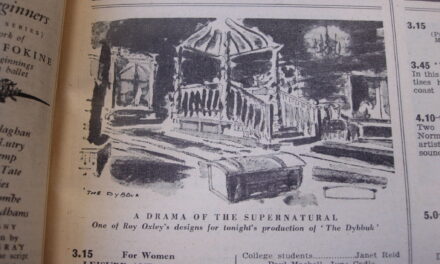
How many of us define ourselves as doing ‘Television Studies’, and state as such when asked by others what our field is? I ask this following an interesting discussion at the opening plenary at last week’s MeCCSA conference, brilliantly hosted by Bournemouth University. That plenary featured Sonia Livingstone, Suzanne Franks and Roberta Pearson presenting on the theme ‘media and cultural studies – where are we now?’, and the talks covered areas such as the relationships between media and practice, and the need to engage with issues of production and reception. During the talks and in the ensuing discussion, an interesting theme emerged concerning the changes that have occurred in media and cultural studies over the last couple of decades, meaning that we have shifted from people moving into media and cultural studies from other disciplines (literature, sociology, history, practice, and so on) to a younger generation of academics who are far more likely to have been trained in media and cultural studies at undergraduate and/or postgraduate level. There was also discussion of whether this shift has been a good thing, with some suggesting it might, in fact, be better for the field if people do come from other disciplines, bringing the knowledge and frameworks established there with them.

A key moment in the discussion arose when talk turned to how individuals describe themselves when asked what they do, and whether failing to announce that you do media studies contributes to the lowly position the discipline has in mainstream discourse. Sonia Livingstone said (quite rightly, I think) that failing to publicly commit to the field means “you’re perpetuating the problem”. Completely unscientific conversations with attendees afterwards seemed to find that the generational context mentioned above was key, with younger academics far more likely to see stating “I do media studies” as the obvious answer. Of course, one of the positive aspects of our fields is their interdisciplinary nature, and it is to our benefit that approaches central to fields such as sociology and literature studies have been brought to bear on the media. But the debate did seem to highlight the continuing nervousness about stating who we are.
So, how does this connect to television studies? The discussion at MeCCSA was primarily about media studies; but it got me wondering how many of us define ourselves as ‘Television Studies’, and see that as a field distinct enough from (though with clear relationships to) areas such as media studies, cultural studies, and film studies. Here at the University of East Anglia my colleague Su Holmes and I are usually referred to as ‘the telly people’, even though a number of people here teach and publish on television, and the School does a lot of practical work in our television studio. And even though Su and I came to UEA with the remit to build up the television component of our provision, my job title is ‘Film and Television Studies’ (though Su requested being solely ‘television studies’ when she agreed her contract, and therefore might be the only person I know whose job title is television alone). It would be interesting to hear from CST blog readers who see television studies as a distinct discipline, and who define themselves as such; my guess is that while the former might be common the latter might be rarer.
Clearly television studies has grown in influence and confidence over the past few years, with this blog and associated journal, plus other publications such as the Journal of Popular Television demonstrating that television can be examined alone, without always being appended to film studies or media studies. But the question remains as to what extent it is feasible or desirable to be seen as a specific discipline. The closing plenary of the MeCCSA conference featured Karin Wahl-Jorgensen and Stuart Allen reflecting on the previous days’ events, under the title ‘where are we going?’. Both speakers critiqued our disciplines’ repeated interests in the new, the changing and the different, and the failure to attend to that which is similar to what has always been; Karin explored this in terms of journalism, arguing that despite a wealth of work on new media and alternative forms of new delivery, for many journalists (particularly in regional newspapers) much of the job now is as it has been for some time.
This focus on change and novelty can be one of the reasons for arguing against the specificity of Television Studies, as television consumption moves away from the traditional television set and becomes part of a digital landscape which includes film, music and other media. But I guess I would want to argue for continued acknowledgement that, for many people, television hasn’t changed; consumption via the big box in the corner of the living room remains the dominant way in which television is consumed by far, and television production – despite newer industry models offered by things such as YouTube and Netflix – remains overwhelmingly in the hands of the institutions that have been making stuff for decades. In overplaying media convergence, an argument can be made for there to be no need for Television Studies, as television ceases to have any specificity. But this misrepresents both television production and consumption, and the medium’s seeming insistence on functioning now as it has for decades instead highlights the specificity of television, and thereby demonstrates the need for something called Television Studies (albeit one which has productive conversation with related fields).
So, is it time for more of us to say ‘I do Television Studies’ when asked about our labour?
Brett Mills teaches television studies (even if his job title is ‘film and television studies’) at the University of East Anglia, UK. He is the author of Television Sitcom (BFI, 2005) and The Sitcom (EUP, 2009) and co-author of Reading Media Theory (Pearson, 2009, 2012). He is currently undertaking the 3-year AHRC-funded research project, ‘Make Me Laugh: Creativity in the British Television Comedy Industry’ (www.makemelaugh.org.uk).




